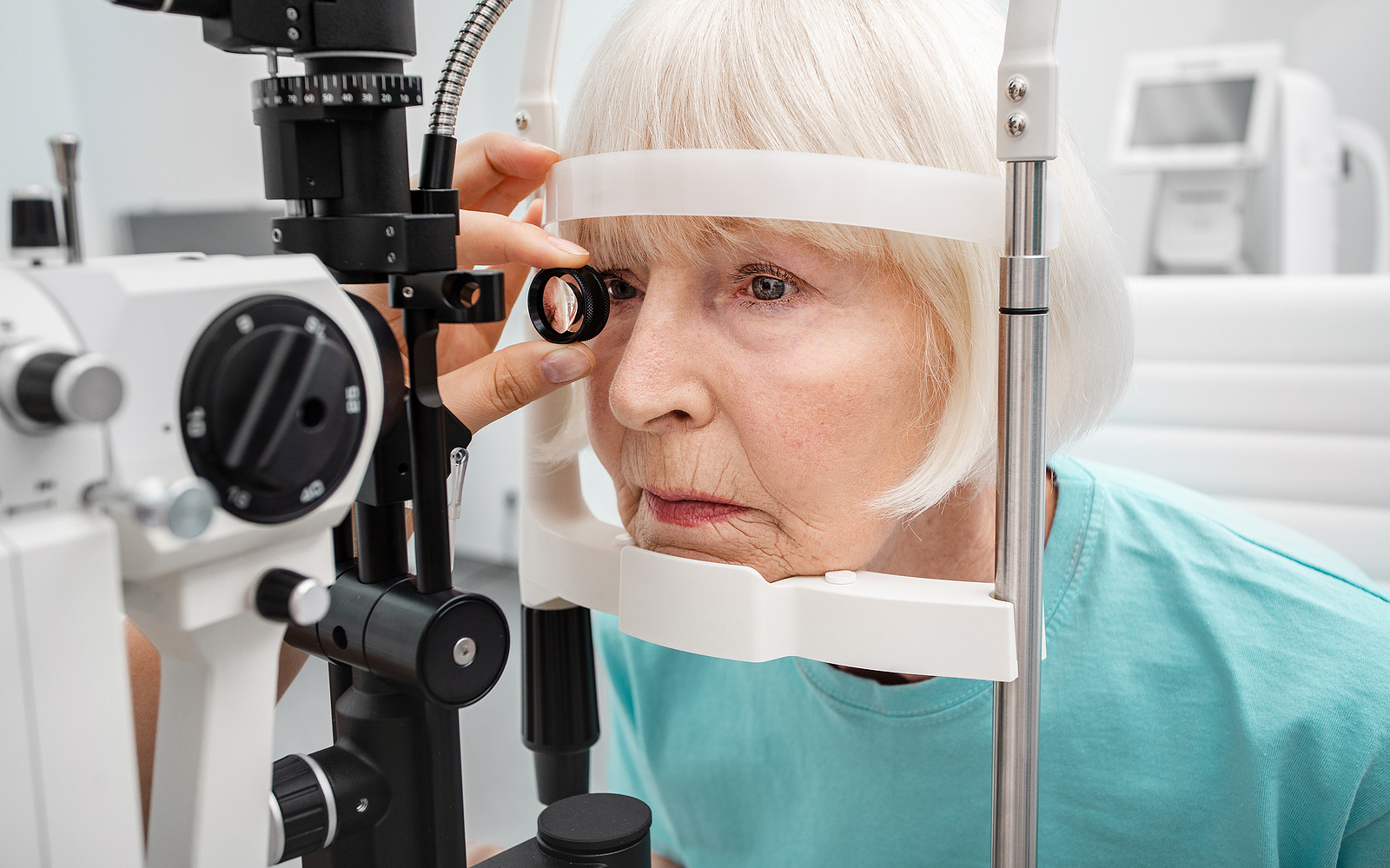Protect Your Eyes from the Effects of Aging with This Guide

Poor vision doesn’t have to be a normal consequence of aging – if you take precautions now.
With age, you may notice slight changes in your eyesight. For example, small print may be harder to decipher, and bright or flashing lights bother you more than they once did. It’s true that these changes are a natural part of aging, but many patients don’t realize that they can also signal more serious medical issues with your eyes.
Patients over the age of 50 suffer more frequently from vision decline brought on by cataracts, age-related macular degeneration, and glaucoma. But it’s not inevitable these conditions will happen to you — especially if you follow these six tips for a lifetime of healthy vision:
Don’t Smoke
Smoking isn’t just bad for your lungs. It also quadruples your chances of developing age-related macular degeneration. That’s because smoking restricts blood flow to the eyes, leading them to absorb higher quantities of the toxic chemicals contained in cigarettes, including tar and nicotine.
Eat a Healthy Diet
Choose foods that are high in antioxidants, as well as in vitamins A and C, to keep your eyes feeling young. Steer clear of foods that are high in saturated fats, and instead choose leafy green vegetables like kale and spinach and lean proteins like fish. In addition, vitamin supplements containing lutein and zeaxanthin have been shown to slow down the progression of age-related macular degeneration.
Maintain a Healthy Weight
Maintaining a healthy weight can help preserve your vision in several ways: First, because obesity can cause fluids to flood the inside of the eye, which can lead to glaucoma. Second, because an unhealthy weight can put you at risk of developing conditions like high blood pressure and diabetes, which can impair eyesight later in life. And finally, because obesity elevates the risk of diabetic eye disease, a leading cause of blindness.
Wear Sunglasses
As you age, your eyes become more sensitive to harsh sunlight. In fact, a 1998 study conducted by Johns Hopkins Medicine linked sun exposure to a higher chance of developing cataracts. In addition, ultraviolet (UV) light may disrupt the metabolism of the cells in the retina and lens of the eye, which ups the risk of age-related macular degeneration. Fortunately, you can protect your eyes from sun glare with sunglasses designed to block UVA and UVB wavelengths. Wraparound sunglasses are ideal because sunlight can’t enter your peripheral vision.
Take a Break from Screens
Because computer and TV screens emit a high concentration of high-intensity blue light, staring at those devices for many hours can strain your eyes. To lessen the stress, frequently turn away from the screen to give your eyes a much-needed rest.
Visit the Eye Doctor
Everyone over the age of 40 should visit the eye doctor for an annual check-up, even if they aren’t experiencing vision problems. Over age 60, your doctor will recommend an annual dilated eye test, which uses medicine to widen the pupils and allows the doctor to see any early signs of disease. If you’re due for an appointment, don’t wait any longer. Book an appointment with the specialists at the Swagel Wootton Eye Institute today at our Mesa or Chandler locations
[DISPLAY_ULTIMATE_SOCIAL_ICONS]








